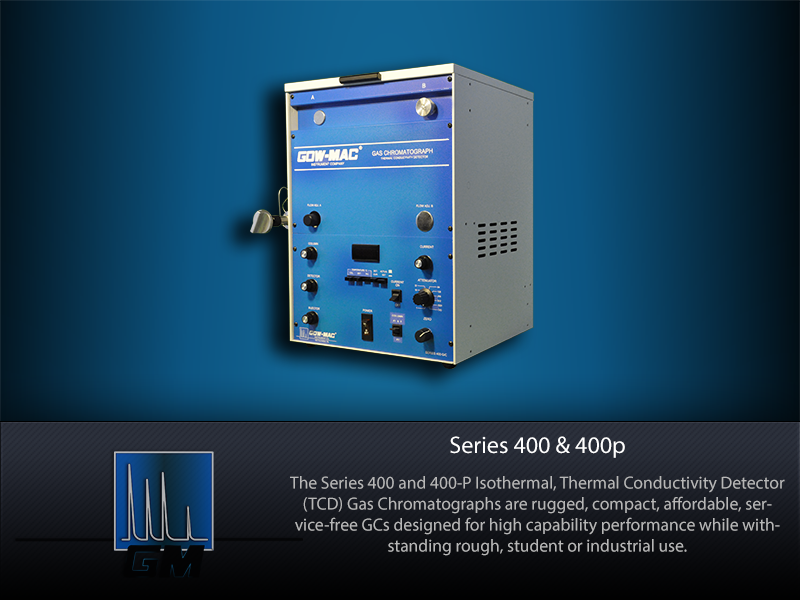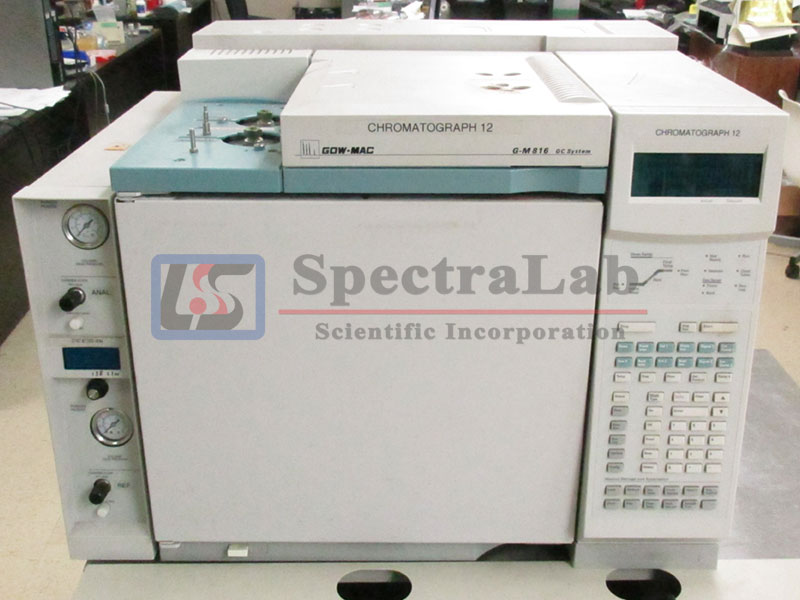The Series 590 DID GC contains a single, GOW-MAC® patented. discharge ionization detector (DID) which is non-radioactive, universal, and concentration dependent. The detector uses an electrical discharge in helium to generate high energy UV photons and metastable helium which ionizes all compounds except helium.
- The Series 816 GC combines the industry's leading digital GC platform with GOW-MAC®'s advanced detector technology. 1999 GOW-MAC opened an office in Taipei, Taiwan.
- Related Manuals for DigiTech RP360. Music Pedal DigiTech RP360 Owner's Manual 120 pages. Digitech guitar multi-effects processors. Recording Equipment DIGITECH TSR12 Owner's Manual 48 pages. Studio reverb / multi-effects processor. Recording Equipment DIGITECH RP 2000 User Manual 42 pages. Thank you for using our software library.
Table I: For specific applications, we recommend using these optimized columns for better method performance. Click on the column name for product specifications and easy online ordering.
Application | Column | Feature | Benefit |
ASTM Method D3606 | D3606 Application Column Set | Excellent separation of ethanol and benzene. | Reliably meets method requirements. |
Refinery Gases | 2abc Refinery Gas Column Set | Optimized three-column set. (Backflush column sold separately.) | Elutes C5 hydrocarbons before C1-C4 hydrocarbons for optimized resolution. |
Unsaturated Light Hydrocarbons | Unique selectivity for unsaturated hydrocarbons. | Excellent resolution of unsaturated light hydrocarbons gives increased data accuracy. | |
cis-2-Butene and 1,3-Butadiene | Optimized selectivity for cis-2-butene and 1,3-butadiene resolution. | Increased data accuracy. | |
Permanent Gases | ShinCarbon ST Columns | Optimized selectivity for permanent gas resolution without cryogenic cooling. Preconditioned. | Increases productivity. |
Low-Level Sulfurs | Rt-XLSulfur Columns | Highly inert for ppbv levels of sulfur. Eliminates need for PTFE tubing. | Increased data accuracy for low-level sulfur analysis. Eliminates need for a special GC setup. |
Table II: Select the packed column configuration that fits your instrument from the options below and add the corresponding suffix to any standard part number.
(Note that small ID columns [1/16” or less] do not require a suffix.)
Suffix | Configuration |
-800 | General |
-810 | Agilent 5880, 5890, 5987, 6890, 7890 |
-811 | Agilent 6850 |
-820 | Scion (Bruker 430, 450; Varian 3700, Vista Series FID) |
-821 | Bruker 430, 450, Varian 3800 |
-830 | PE 900-3920; Sigma 1,2,3 |
-840 | PE Auto-System 8300, 8400, 8700; Clarus 500 |
-841 | PE Auto-System XL |
-850 | Shimadzu 14A, 2014 |
-851 | Shimadzu 8A |
-852 | Shimadzu 9A |
-853 | Shimadzu 17A, 2010 |
-854 | Shimadzu Mini 2 |
-860 | Thermo TRACE 2000 |
-865 | Carlo Erba |
-870 | Tremetrics/Tracor |
-874 | HNU 310, 311 |
-875 | Analytical Controls |
-880 | Carle 40030 |
-881 | Hitachi 263 |
-885 | Pye Unicam 4500 |
-890 | Gow Mac 590 |
-891 | Gow Mac 550 |
-892 | Gow Mac 750 |
-893 | Gow Mac 816 |
-895 | SRI 8610C |
-895R | SRI 8610C Dual GC right side |
-895L | SRI 8610C Dual GC left side |
-896 | SRI 9300 |
Gow Mac Gc Manual Pdf


Table III: Complete your column with one of our fitting kits.
Option* | Description |
Kit 1S | Fitting Kit: 1/4' Brass Nuts, 1/4' TO 1/8' VG Reducing Ferrules |
Kit 2S | Fitting Kit: 1/4' Brass Nuts, 1/4' TO 3/16' VG Reducing Ferrules |
Kit A | Fitting Kit: 1/8' Brass Nuts, 1/8' VG Ferrules |
Kit B | Fitting Kit: 1/8' Brass Nuts, 1/8' Brass Front & Back Ferrules |
Kit C | Fitting Kit: 1/8' SS Nuts, 1/8' SS Front & Back Ferrules |
Kit D | Fitting Kit: 1/8' SS Nuts, 1/8' SS Ferrules |
Kit E | Fitting Kit: 1/4' SS Nuts, 1/4' TO 1/8' VG Reducing Ferrules |
Kit F | Fitting Kit: 1/4' SS Nuts, 1/4' TO 3/16' VG Reducing Ferrules |
Kit V | Fitting Kit: 1/8' VCR; choose SS or Nickel |
Preconditioning | Optional for each finished column |
*Some options available at additional cost. | |

Introduction
You will be given mixture of unknown composition for this lab. It will contain several organic compounds with similar boiling points diluted in acetone. You need to (1) determine how many components there are in the mixture, (2) determine the percent composition for each compound, and (3) determine the relative polarities of the compounds.
Gow Mac Gc Manual
There are two gas chromatographs available for this task, and your goal is to determine which works best. You will run the sample on both instruments and compare their performance. Specifically, one lab partner will use a Gow-Mac 150-series isothermal gas chromatography and the other will use a Gow-Mac 400-series. Both use thermal conductivity detectors (GC-TCD) and work on the same principles. They separate compounds by both boiling point and polarity, and produce a peak for each component wherein the peak area is proportional to the amount of that component present.
Before coming to lab you should be familiar with the concepts presented in the following videos:
Gow Mac Gc Manual Free
- Gas chromatography
- Gow-Mac GC-TCDs (optional - we will go over this material in lab)
